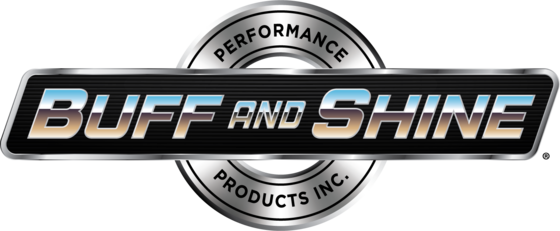Uro-Wool™
Buff and Shine Manufacturing is pleased to unveil its first wool member of the “Uro” pad line. The Uro-Wool™ Cutting pad is the most aggressive of the Uro-Wool™ pad line with another on the way. It is specifically designed for those jobs that require heavier cutting.
These new wool pads allow for even more cutting capability than Buff and Shine’s most aggressive foam pads from the Uro-Tec™ and Uro-Cell™ lines. But don’t be confused by the term “wool”, as these are not your traditional twisted pads that old-school technicians used for decades on simple rotary machines. In fact, the Uro-Wool™ pad uses 100% processed wool that is “knitted” onto the pad, not twisted. The biggest advantage of knitted wool is the lack of lint—no more wool fibers floating around the shop!
The face of the knitted wool pad is soft to the touch and made up of hundreds of individual wool fibers per square inch. The appearance of knitted wool is often compared to that of lambs-wool, although the two are quite different, as lambs-wool tends to have an inconsistent surface. And the knitted wool has a more precision construction, yielding durability and consistency in use.
You will notice that the Uro-Wool™ pad has virtually no interface between the wool fiber pad face and the hook-and-loop backing material. This allows the power of the polisher and the movement of the technician to transfer more directly and actively to the paint surface, resulting in faster cutting and correction cycles. The knitted wool face takes a stronger “bite” or cut, with superior leveling capability.
Yet the Uro-Wool™ pads won’t leave pigtails associated with using twisted wool pads on dual-action machines. Nor will leave heavy swirls associated with using twisted wool pads with rotary machines. In fact, the Uro-Wool™ pads have a great capability of “finishing down” the paint so that less follow-up polishing is needed. The practiced technician will find that some heavy-cut situations that might have previously taken several steps can now be accomplished in just two steps—starting with Uro-Wool™ pad and finishing up with one of Buff and Shine’s Uro foam pads.
Uro-Wool™ can be used with all polishing machines—simple rotary, dual-action, random-orbit, long-throw, high-action, gear-driven. The pads are available in 6”, 5”, and 3” widths.
To clean Uro-Wool™ pads, use compressed air or an appropriate pad brush. You can also use a mechanical pad washer or wash them by hand.
The bottom line on Uro-Wool™: more cutting, less work, great results.
